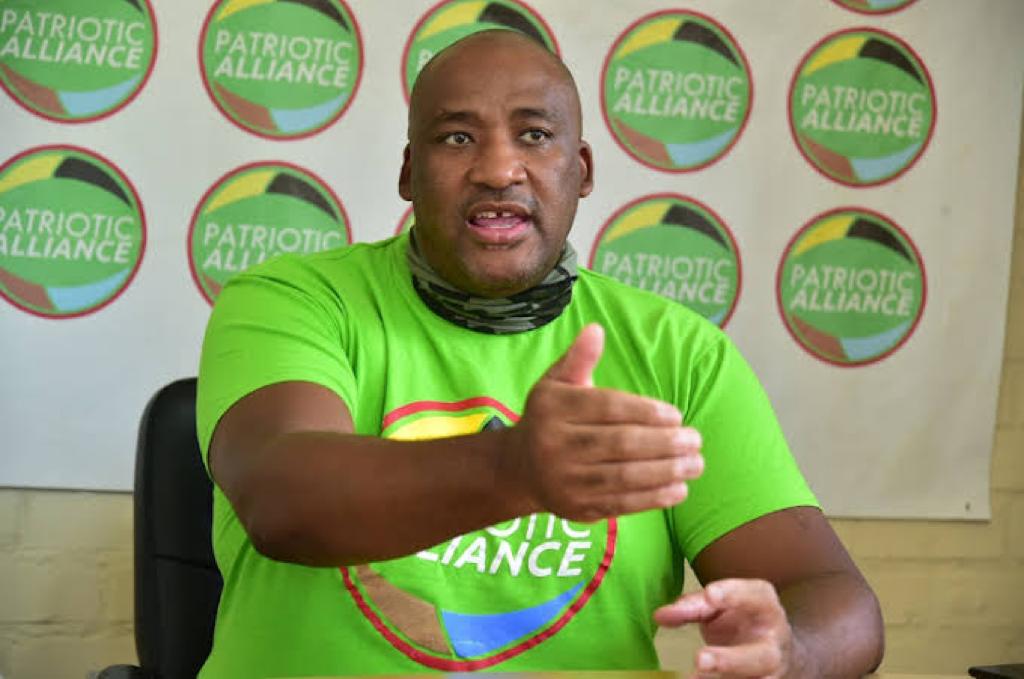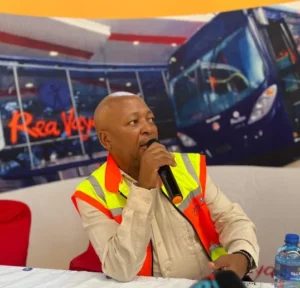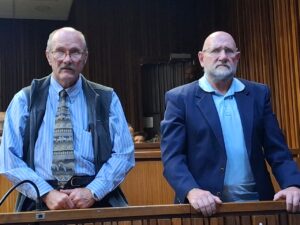By: Sello Theletsane
In his Sunday-evening live broadcast on Facebook, Patriotic Alliance (PA) president Gayton McKenzie weighed in on the proposed R4.5 billion River Club development in Cape Town, saying that he and the PA would not allow a project with the promise of thousands of jobs to be derailed for political or even dubious commercial reasons.
GroundUp reported last week that the R4.5 billion development at the River Club site in Observatory was stopped, with the high court ruling that the developers needed to “consult meaningfully” with all affected people.
McKenzie said that although he supported the principle of ensuring enough consultation was done, he would personally ensure that this now took place openly and transparently and as quickly as possible.
However, he had assessed the proposed project and the economic and employment benefits it was offering were too substantial to oppose.
“They gave 1000 people jobs. They are on-site. They are working.”
The development is projected to employ more than 5000 people, with many more indirect jobs also created.
McKenzie said about 50 Observatory residents were now opposed to the development, while some Khoisan leaders felt the developers had not consulted adequately with them in a public participation exercise. McKenzie said he had consulted extensively with various Khoisan leaders who expressed satisfaction about the PA’s involvement in the matter.
“How did the PA get involved? We were approached by 200 of our people there who lost their jobs because of the court matter to stop that development. I told the PA people working there to hold on, we shall investigate.”
After meeting with the traditional chiefs, they found out about “infighting” among different Khoisan houses regarding the development.
“That is not something that can’t be sorted out among them. When we have differences, it should not affect the livelihoods of our people. There are people that work on that site that previously had nothing. I don’t know if this company consulted enough, but what I do know is that we have to bury people weekly with our own money because of gangsterism. The young people who could have worked there and changed their lives are now not working.”
McKenzie said the PA would go to the high court on behalf of the affected PA workers so that they could get back to work.
“We need those 1000 people to get back into work. Here we have a company that’s come to Cape Town, hired our people, and not hire foreign workers. I don’t care who is right. I don’t care who’s wrong. I’m saying to you our people will go back to work. That development will go on. Anyone standing in front of that development is standing in front of 1000 people and their jobs. We’ll come to your house and ask you to feed those people because now we are the ones who must help people.
“Why can’t you get together as leaders and sort out your differences?”
He said the South African government had never done what the developers had already done to recognise the Khoisan at the historical site. The interim court interdict will remain in place while a review is done of the relevant environmental land use authorisations for the development of the historically and culturally significant floodplain.
The judge ruled that the Khoi and San First Nations Peoples had not been properly consulted.
The development of a “large-scale urban campus” on the site where the Liesbeek and Black Rivers join, began last year. It includes the regional headquarters for Amazon.
“We want our people to go back to work,” said McKenzie. You are involved in infighting but you have food at home. Don’t shake businesses and people down and stop things that can change people’s lives.
“Don’t make us as the PA take over on this thing. Because at the end of the day, it is about money, I’m sure.”
He said the PA would ensure that no one stopped the development.
“We took young people out of gangsterism to get jobs there.” McKenzie undertook to ensure that the PA would put all the affected Khoisan groupings around a table on Thursday, to “find a solution”.
He added that South Africans should not be against business development simply on matters of interpretation.
“For the first time, there’s a company that’s listening to people. If you’re unhappy with the company, why can’t you just go and talk with them and say ‘add this, or do that?
“I am sick of unemployment. Don’t make me mad. I will take over those negotiations myself if I have to. Why can’t we leave the Khoisan leaders who started this thing to carry on? The developers didn’t walk around quietly or do secret meetings with people in big buildings. They were open about what they wanted to do.”
McKenzie said he hoped there was no truth to rumours that a local company was behind the project’s stoppage because it was afraid of competing with Amazon.
Earlier this month the Observatory Civic Association (OCA) and Goringhaicona Khoi Khoin Indigenous Traditional Council (GKKITC ) approached the court for the interdict, citing the trustees of the Liesbeek Leisure Properties Trust, provincial and local government and the Western Cape First Nations Collective as respondents.
The site, which was bought by the trust for R12 million, forms part of a broader area known as Two Rivers Urban Park (TRUP) that was the dominion of the Gorinhaiqua and, according to the applicants, is the only undeveloped remnant of the grazing lands used in the summer by the Khoekhoe for their cattle.
The applicants said the sites hosted “significant ceremonies and gatherings” and are “holders of memory”.
A provincial government-commissioned heritage study concluded that the entire TRUP area had historic and symbolic value.
Judge Goliath, in her ruling, said any development of the site necessitated consultation with the First Nations Group and, to this end, the provincial department of public works had appointed Rudewaan Arendse of AFMAS Solutions to consult with the First Nations groups and to prepare a report on a local spatial development framework for TRUP.
However, there were divisions within that grouping.
A group in favour of the development was established under the umbrella of the First Nations Collective and the GKKITC terminated its engagement with Arendse during the consultation process.
There were further consultations directed by Heritage Western Cape which led to a report and multiple phases of public comments, which were overwhelmingly negative.
Environmental authorisation, which Heritage Western Cape objected to, was issued in August 2020.
Development commenced in July 2021.
In his affidavit before the court, GKKITC commissioner Tauriq Jenkins confirmed he had been interviewed by Arendse but said after the First Nations Collective was formed to support the development, those opposed were “vilified and abused”.
He believed Arendse had a conflict of interest and his report had elevated the First Nations Collective as the “authoritative voice” and downplayed the cultural significance of the River Club site.
The developers, in opposing the interdict, said there had been meaningful consultation and public participation.
They said the community’s cultural aspirations for the site had been taken into account and the development included an indigenous garden for medicinal plants, a cultural and heritage media centre and a heritage eco-trail.
About 60% of the property would be open space, accessible to the public and the Liesbeek Canal would be rehabilitated.
They denied favouring the First Nations Collective or having secured “manufactured consent”.
Any delay in the development could render it unviable, leading to job losses, the developers said.
The City of Cape Town was on the site with the developer. It said any interdict would sabotage the only viable opportunity to protect and celebrate heritage resources on the site. The City said that the economic benefits of the project were substantial, that the applicants had been given an opportunity to make comprehensive submissions and that they were not entitled to veto the development because they disagreed with it.
Judge Goliath, in her ruling, said the developers had sought to persuade the court that the project was supported by the majority of First Nations Groups through the First Nations Collective. Jenkins had contested this.
*Additional reporting by GroundUp








Judge Goliath has a mansion in the rich suburb of Constantia and also has a job with many perks and don’t care whether the coloureds of Cape Town have jobs. It’s time she and Hlope resign.